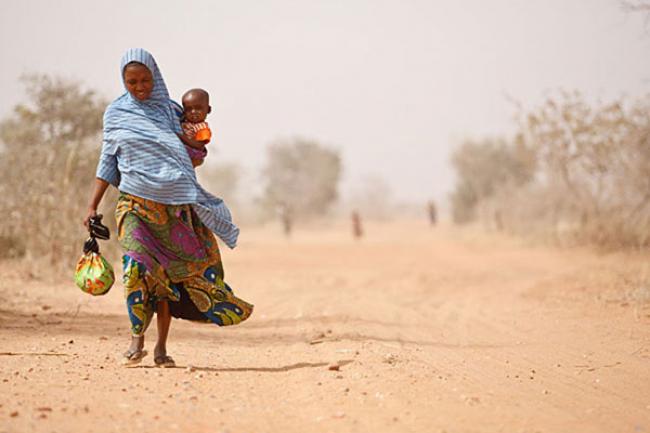20 Nov 2014

“The Sahel, despite all the priorities around the world, continues to be a preoccupation for the United Nations and humanitarian teams,” UN Regional Humanitarian Coordinator for the Sahel, Robert Piper, said at a press briefing in Geneva on the “chronic emergency” confronting the countries of Burkina Faso, Cameroon, Chad, Gambia, Mali, Mauritania, Niger, Nigeria and Senegal, making up one of the poorest regions in the world.
Mr. Piper said the situation in northern Mali has deteriorated substantially through the course of the year; while immediately outside of the Sahel, insecurity in Darfur has sent refugees into Chad; and hundreds of thousands have fled the Central African Republic into Chad and Cameroon, and Libya continues to boil over.
He noted that Ebola has touched the Sahel in Senegal and Nigeria, but praised the governments in those countries for their success in stemming the virus’ spread.
“Mali is the next place of concern,” he said of the re-emergence of the Ebola virus there.
“Nigeria is, however, by far the biggest concern,” according to Mr. Piper, who said the situation has deteriorated dramatically this year, and that in the course of a few months, the number of people fleeing Boko Haram fundamentalists have jumped from 600,000 six months ago to more than 1.5 million people.
He said the displaced from Nigeria have been seeking shelter in neighbouring countries such as Niger, “the poorest country on the planet,” and Cameroon.
“The scale of the challenges there is truly very, very worrying,” he said.
The humanitarian coordinator noted that Burkina Faso is “relatively calm” in the wake of recent civil unrest, and he hoped the transition process continued to be a peaceful one.
Mr. Piper also stressed that Ebola preparedness needs to be given more attention in the Sahel region.
“Work has begun,” he said, and “preparedness teams are visiting the countries one by one…but funding is very short. We seek $25 million in Ebola preparedness.”
Describing the extent of the humanitarian crisis, Mr. Piper noted the number of internally displaced peoples, refugees and returnees who have been “wrenched from their homes and their livelihoods” has jumped from 1.3 million at the beginning of the year to 3.3 million today.
Further, since the beginning of the year, the number of people considered food insecure had jumped from 20 to 25 million in the Sahel, and half of the 1.2 million severely malnourished children died last year in the region.
The regional humanitarian appeal of some $2 billion is currently 54 per cent funded. Ten years ago, the region’s needs amounted to some $200 million, he recalled.
To reverse the dire situation in the Sahel, Mr. Piper noted that there needs to be a focus on basic structural and governance issues, as well as on challenges like climate change, access to basic health services and clean water, and countering the demographic growth projected in the region.
Without addressing “structural vulnerability,” he said, it is like saving a girl from acute malnutrition, and then returning her to the same household without access to clean water and with possibility of marriage looming by the times she is 15 years of age.
“These issues need to be addressed successfully for us to imagine an exit strategy,” he said.
A woman and her severely malnourished son leave a UNICEF-supported health centre, in Maradi Region. Photo: UNICEF/Olivier Asselin